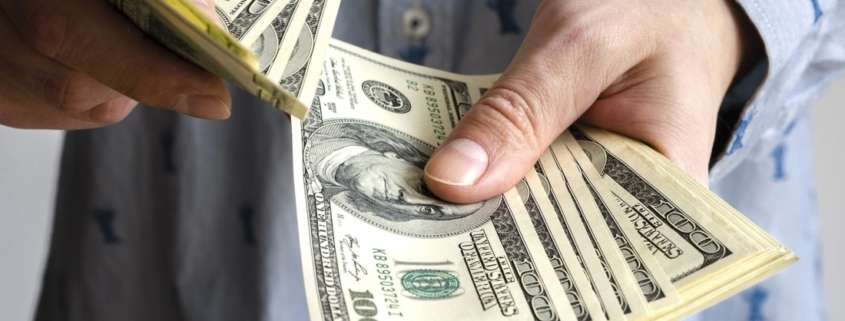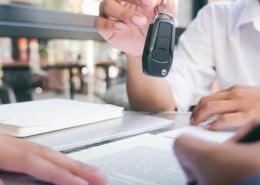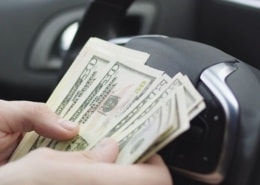How to Estimate Your Car’s Value
Estimating your trade-in’s value before visiting a dealership will save you hundreds, if not thousands of dollars. It will also help you avoid dealer trade-in scams.
A dealer may use several tricks of the trade to avoid giving you the total amount of what your trade’s worth. Having a good idea of your car’s worth will keep you out of trouble.
Trading Your Car in at a Dealership
Suppose you decide to trade your car in. Several factors, such as the used car market, mileage, overall condition, and vehicle popularity, will come into play when calculating its value.
The used car market fluctuates pretty much daily. This makes determining exactly what a used car trades worth almost impossible.
What can you do? With some research, you can get a reasonable estimate of what your trade is worth, so you can have an idea of what a dealer should offer you.
Definition of Actual Cash Value (ACV)
This term originated in the insurance industry; it’s used loosely in the car business. A car’s actual cash value is also known as the fair market value (FMV). The definition of Fair market value is:
The total amount someone is willing to pay for the vehicle, in the condition it’s in, at the time of sale.
After buying a new vehicle, the moment you drive it off the lot, it begins to depreciate. Even if you only put 50 miles on it and try to trade it, the vehicle will be worth much less than the original purchase price.
To make matters worse, the longer you’ve owned the vehicle, the more it depreciates.
Other Factors that Determine Trade ACV
Other factors you will need to take into account when determining your trade-in’s actual cash value:
- Popularity and demand for the vehicle
- Age of the vehicle
- Seasonal timing (Convertibles in the winter)
- Wear and tear
- Mileage on the car
- Previous accidents
- Significant discrepancies on the vehicle
- The current market for the vehicle (4×4 in a metropolitan area)
- Reconditioning needed
All this information is considered when determining the actual cash value of the vehicle during the used car appraisal process.
Why You Should Estimate Your Trade-in Value
An estimate of your vehicle’s worth will keep a car dealer from attempting to “steal” your trade. A dealer will only offer you roughly wholesale value (or less) for your vehicle minus any reconditioning costs they must pay to get the car ready for sale.
Unethical dealers may attempt to offer you less than what your vehicle is worth. You can fall for this dealer manipulation if you don’t know your trade’s value. It can cost you thousands of dollars.
How a dealer may attempt to steal your trade:
$18,000 – Actual cash value of the vehicle
$ 15,500 – Offer presented to you
$ 2,500 – Additional profit to the dealership
It’s common practice for a dealer to “hold-on-a-trade” or lowballs a trade-in value when a customer trades in a car.
You can avoid this common car dealer scam if you know roughly what your vehicle’s worth.
How to Calculate the Value of Your Trade-in
I recommend using Edmund’s appraisal tool. The appraisal tool is free and provides the closest estimate to what a dealer will give you when trading in a vehicle. – Appraise Your Trade-in Here.
The Edmunds appraisal tool will give you a reasonable estimate of what your trade is worth at a dealership, privately selling it on your own, and even what a dealer will retail it for. Keep in mind that an appraisal is just somebody’s opinion. Getting several professional “opinions” of what your trade is worth is good practice.
I like the Edmunds appraisal tool over a tool like Kelley Blue Book (KBB) because KBB is a California publication, and most dealers around the country don’t use their values when appraising a vehicle.
Their appraisal values can sometimes run a couple of thousand dollars or higher than what a dealer will give you. For people in California, KBB is the way to go, but using KBB in other parts of the country will provide you with false hope and unrealistic values when trying to figure a realistic number.
Keep in mind that you’re looking for an accurate number. Be as fair and honest as possible when entering information about your trade into these sites. You don’t want to cheat the system and give yourself false numbers.
EXAMPLE: Don’t state that your car only has 50k miles on it and 59,867 miles. Or say your vehicle is in excellent condition and in rough shape.
A dealer will not give you any money for your car until someone appraises it. Your goal is to get as close to the true Actual Cash Value (ACV) of what your vehicle is worth. If you don’t tell the truth about the condition of your car, you’re only hurting yourself. Remember that a live person will eventually appraise your vehicle, and these professionals will catch any deceptiveness on your part.
NOTE: Before you take your vehicle to the dealership, have it physically appraised. Make sure you follow a few simple and easy tips to increase the value of your trade-in.
The Internet Will Not Write a Check for Your Car
You will also be asked to select the overall condition of your vehicle. Your choices will be excellent, clean, average, or poor.
Car dealers have sources for the value of used cars when appraising them. The public doesn’t have access to this industry information, and these used car values tend to run much less than the values on most online appraisal tools. As I stated earlier, the Edmunds appraisal tool is about as close to actual appraisal values as possible.
If your car does not fall under damaged or rough, always select its current condition as Average. You may want to print the pages out for the Poor values for your records.
If the car is in like-new condition with just a few thousand miles, you can select Clean, but you should still choose Average to keep on file in case you need to revert to it.
After seeing these amounts, you will know why I STRONGLY suggest selling your current vehicle privately or on your own.
Determining the value of your car is not easy; however, there are some steps you can take to get an excellent estimate.
The used car market raises and lowers daily. Remember, an appraisal is just someone’s opinion. The more quotes you can get, the better your idea of your vehicle’s worth.
Alternative Ways to Calculate Your Vehicle’s Value
Online companies such as Ryde Shopper and Cars Direct use current market values such as Kelley Blue Book and Black Book to figure the value of cars. You can visit these websites, find their trade-in or used car sections, enter your trade information, and get a good idea of what your vehicle is worth.
You can also call several local dealerships and ask to speak with the used car manager.
Describe your vehicle to him and ask what he believes the value of your car would be. It may be tough to get answers because managers don’t like to give sight unseen appraisals and may tell you that you have to come to the dealership if you want an appraisal.
If you’re trading in a Chevy, you may want to call a Chevrolet dealer to get the best bids. Selling a Ford, contact a Ford dealer, and so on.
Get a minimum of three or four bids, average them out, and it will give you an idea of what your vehicle is worth.
Contrary to popular belief, after making a car ready for sale, most car dealers only mark up their vehicles somewhere between $1,000 to $2,500 over wholesale value. There’s not a massive 300% mark-up like in other retail industries.
With that in mind, you can go to the used car sections of sites like Ryde Shopper and Cars Direct to search for your current car. Whatever the list price is, discount the car about $2,500, and that will be a pretty good estimate on your vehicle’s value BEFORE reconditioning or repair costs.
Several conditions other than the actual vehicle may affect a trade-in’s value, such as the vehicle’s popularity, quality, history, and overall used car market.
In conclusion, the best way to determine the value of your trade is to get several opinions about the vehicle you want to trade. Gathering different appraisals online and offline will give you a good idea of your car’s worth.








